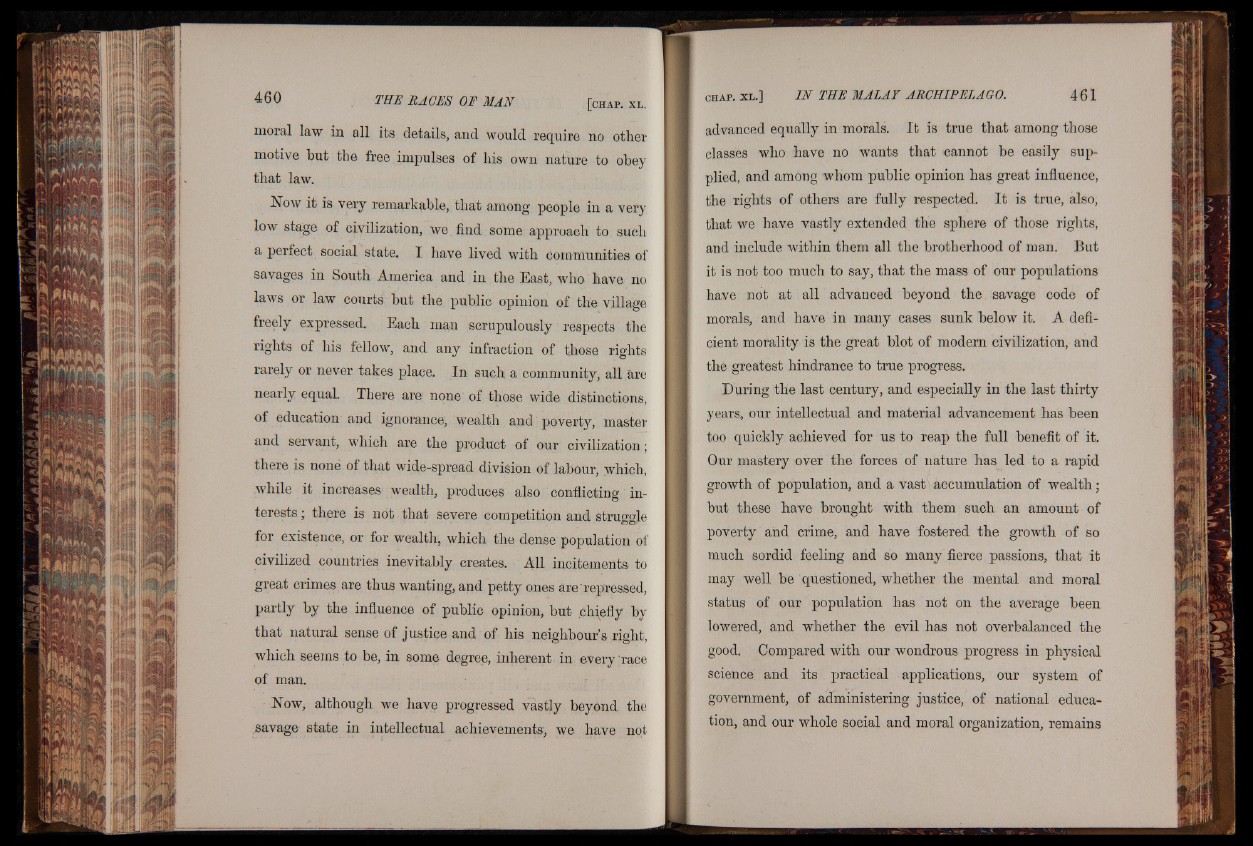
moral law in all its details, and would require no other
motive but the free impulses of his own nature to obey
that law.
How it is very remarkable, that among people in a very
low stage of civilization, we find some approach to such
a perfect social state. I have lived with communities of
savages in South America and in the East, who have no
laws or law courts but the public opinion of the village
freely expressed. Each man scrupulously respects the
rights of his fellow, and any infraction of those rights
rarely or never takes place. In such a community, all are
nearly equal. There are none of those wide distinctions,
of education and ignorance, wealth and poverty, master
and servant, which are the product of our civilization;
there is none of that wide-spread division of labour, which,
while it increases wealth, produces also conflicting interests
; there is not that severe competition and struggle
for existence, or for wealth, which the dense population of
civilized countries inevitably creates. All incitements to
great crimes are thus wanting, and petty ones are repressed,
partly by the influence of public opinion, but chiefly by
that natural sense of justice and of his neighbour’s right,
which seems to be, in some degree, inherent in every race
of man.
How, although we have progressed vastly beyond the
savage state in intellectual achievements', we have not
advanced equally in morals. It is true that among those
classes who have no wants that cannot be easily supplied,
and among whom public opinion has great influence,
the rights of others are fully respected. It is true, also,
that we have vastly extended the sphere of those rights,
and include within them all the brotherhood of man. But
it is not too much to say, that the mass of our populations
have not at all advanced beyond the savage code of
morals, and have in many cases sunk below it. A deficient
morality is the great blot of modem civilization, and
the greatest hindrance to true progress.
During the last century, and especially in the last thirty
years, our intellectual and material advancement has been
too quickly achieved for us to reap the full benefit of it.
Our mastery over the forces of nature has led to a rapid
growth of population, and a vast accumulation of wealth;
but these have brought with them such an amount of
poverty and crime, and have fostered the growth of so
much sordid feeling and so many fierce passions, that it
may well be questioned, whether the mental and moral
status of our population has not on the average been
lowered, and whether the evil has not overbalanced the
good. Compared with our wondrous progress in physical
science and its practical applications, our system of
government, of administering justice, of national education,
and our whole social and moral organization, remains